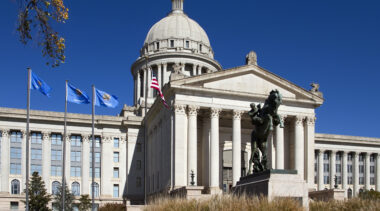-
Why paying down New Hampshire pension debt faster would be a win for taxpayers
A “catch-up” payment toward the New Hampshire Retirement System's unfunded liabilities would reduce pension debt and yield long-term cost savings.
-
Evaluating the potential impacts of Louisiana Senate Bill 438
The proposed hybrid plan is more expensive than the current pension under all scenarios.
-
Paying down PSPRS debt faster is a win for taxpayers
Unfunded PSPRS and ASRS liabilities make those pension systems more costly, pressuring government budgets. Paying down pension debt as fast as possible avoids interest costs and saves taxpayers money.
-
House Bill 2486 threatens Oklahoma’s pension progress
Public pension changes of the magnitude being proposed should receive rigorous actuarial and risk analyses that ensure future generations’ interests are protected.
-
Actuary highlights House Bill 55’s costs and risks to the Alaska Public Employees’ Retirement System
Changes of the magnitude being proposed in Alaska House BIll 55 should receive rigorous actuarial and risk analyses that have not yet been conducted.
-
Understanding the recent nationwide increase in crime
Violent crime has decreased dramatically since its peak in the 1990s. In 2020, the violent crime rate remained near the record lows achieved throughout the 2000s.
-
Pennsylvania House Bill 2272: Making the state’s distilled spirits monopoly illegal
Pennsylvania HB 2272 would end the state-run liquor monopoly, but stops short of establishing a competitive, private market replacement.
-
Senate Bill 10 undermines the Teacher Retirement System of Louisiana
SB10 is likely to weaken the Teachers’ Retirement System, which is already burdened with $9.3 billion in unfunded liabilities.
-
The benefits of the pupil transportation policy reforms in Arizona’s SB 1630
Smaller, lower-cost vehicles would help students living in rural, geographically diverse areas of the state, but also assist urban families.








